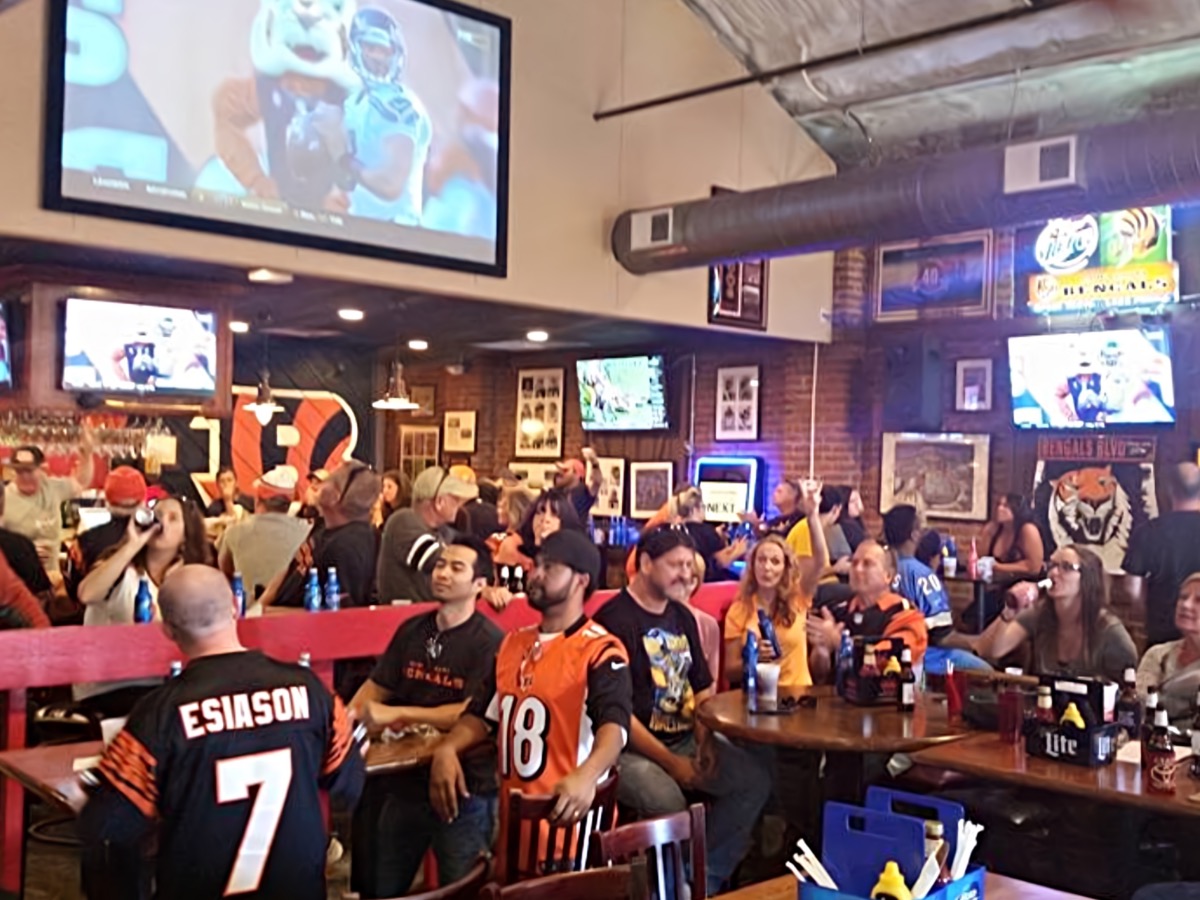Ohio Sports Betting Kiosks Raise Questions, Not All Are Answered Yet
Posted on: August 11, 2022, 07:02h.
Last updated on: August 11, 2022, 07:05h.
One of the unique aspects of Ohio’s sports betting law is the inclusion of an array of businesses that can participate in the expanded gaming opportunity. For many of those businesses, their entry into sports betting will be through hosting kiosks.

More than 1,000 bars, restaurants, golf courses, bowling alleys, and even grocery stores have been prequalified by the Ohio Lottery Commission (OLC) to host kiosks, and Ohio Casino Control Commission (OCCC) Executive Director Matt Schuler has said he expects around 2,000 such establishments to apply.
Under the sports betting law, entities that want to host kiosks must be for-profit businesses with a lottery license and in good standing with the OLC. They must also have a D-1, D-2, or D-5 liquor license, which allows them to sell by the drink.
While they must have the lottery’s recommendation and the OLC will manage the kiosk portion of the sports betting enterprise, applicants will still need to have their licenses approved by the OCCC.
Ohio sports betting is set to launch for all parties – kiosks, online platforms, and brick-and-mortar sportsbooks – on Jan. 1. Aspiring kiosk hosts that want to be assured of starting on the universal launch date, if approved, must submit their applications by Monday to the OCCC.
While that important deadline approaches, there are still several questions that remain regarding just how the kiosks will operate.
Here are the answers that Casino.org has received to some of those questions in the past few days.
Betting Amounts, Wagering Options Limited
One of the main differences between sports betting at kiosks and wagering through online apps or in-person sportsbooks is lawmakers’ restrictions on the kiosks.
For starters, wagering opportunities will be limited to the standard bets on sporting events. That means betting on the point spread, the moneyline, or the totals (i.e., over-under bets). Parlays are available, but they will be capped at four legs.
That’s not the only restriction in place with kiosks. Bettors also will be limited in how much they can bet through the kiosks. The law states no one can bet more than $700 per calendar week through the kiosks, either self-serve machines or operated by a clerk at the establishment.
The sports betting law calls on the commission to issue at least two licenses to kiosk operators and no more than 20. Currently, seven operators have applied with the OCCC.
So, how will multiple kiosk operators know how much a specific person has wagered for a week at what could be several establishments hosting the machines?
“Once proprietors are licensed, we will know more about their plan to comply with the legislation,” Lottery spokesperson Danielle Frizzi-Babb told Casino.org.
Preventing Underage Betting
Another potential issue is how will the lottery and its network of retailers prevent underage betting.
Anyone 18 or older can buy an Ohio Lottery scratch-off ticket or an entry into its drawing games. However, the minimum age to place a sports betting wager is 21.
It may not be an issue in bars. But what about other places where individuals under 21 may be present – especially if the host establishment offers self-serve kiosks?
And in a place like Kroger, would the machines need to be in its liquor department, or could it be where other lottery vending machines are located?
Frizzi-Babb told Casino.org that a self-serve kiosk must be located in a “designated area” where host employees can observe it to prevent underage betting and provide security for the machines.
“The final placement for equipment at each host location will be discussed with the proprietor partner they contract with, in conjunction with all applicable Lottery regulations,” Frizzi-Babb said.
Some Changes May Take Effect After Jan. 1
Currently, the rules on sports betting kiosk operations in Ohio are going through the state-mandated Common-Sense Initiative (CSI) and Joint Committee on Agency Rule Review (JCARR) processes.
CSI reviews the proposed rules and offers, if necessary, recommended changes to agencies before JCARR, which consists of members of the state House and Senate. The joint committee holds public meetings on the proposed rules and may recommend to the full legislature that the regulation is invalid.
CSI is accepting comments on the draft rules regarding the payment of winning sports bets. The comment period is open through Monday.
Some questions have been raised about what entities should be able to cash out winning sports bets from kiosks. The Ohio Grocers Association has been pushing for a rule that allows lottery retailers that do not host sports betting kiosks to pay winners up to $600.
Frizzi-Babb said the law passed by the legislature allows the OLC to expand payment options. But those may not be in place for the universal launch date.
“If the rule is not effective, then the expanded cashing options may not be available on Jan. 1… In the meantime, we continue to work toward completing all lottery sports gaming rules and starting the program on the universal start date,” she said.
JCARR will discuss several sports betting regulations at its next meeting this Wednesday.
Related News Articles
Giant Eagle Latest Grocery Chain to Apply for Ohio Sports Betting Kiosks
Ohio Sports Betting Update: SPIRE Conditionally Approved for Licenses
Sports Betting Roundup: Caesars, SuperBook Opens New Retail Sportsbooks
Most Popular
This Pizza & Wings Costs $653 at Allegiant VIP Box in Vegas!
Sphere Threat Prompts Dolan to End Oak View Agreement
MGM Springfield Casino Evacuated Following Weekend Blaze
Fairfax County Officials Say No NoVA Casino in Affluent Northern Virginia
Most Commented
-
VEGAS MYTHS RE-BUSTED: Casinos Pump in Extra Oxygen
— November 15, 2024 — 4 Comments -
Chukchansi Gold Casino Hit with Protests Against Disenrollment
— October 21, 2024 — 3 Comments
















No comments yet